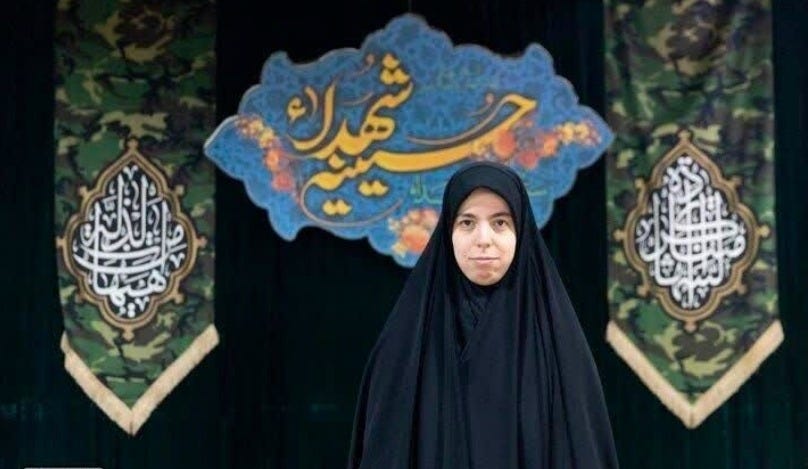Shaheedah Fereshteh Baqeri - A Daughter’s Question, A Martyr’s Answer
She was martyred with her father, Shaheed Mohammad Baqeri, on the first day of the 12-Day War—her longing became her destiny
At the Mi‘raj-e Shuhada (martyrs’ memorial), a young girl once voiced a question that carried the weight of faith and resolve:
“The men are always on the battlefield, but is it possible for me, as a woman, to become a martyr too?”
She was the daughter of Shaheed Mohammad Baqeri. And on the very first day of the 12-Day War, she was martyred alongside her father. The question she asked did not linger unanswered; her life itself became the reply.
Her words were not about chasing death, but about seeking meaning—about whether sacrifice, nearness to God, and the defence of truth are reserved for men alone. Her martyrdom affirms what the tradition of resistance has always taught: that women are not on the margins of struggle. They stand within its heart—sometimes in steadfast patience and service, sometimes under bombardment and siege, and sometimes—like her—in the very place where blood testifies louder than words.
The image of father and daughter returning to God on the same day distills an entire creed into a single, luminous scene: courage is inherited; faith is taught at home; and the path to Divine pleasure is open to every soul that answers the call. Their shared martyrdom is a thread binding generations—proof that love for God and fidelity to justice can move a family as one.
Her question now echoes as a charge to us: expand our understanding of martyrdom, recognise women’s full share in sacrifice, and honour the unseen labor and the seen blood with equal reverence. In remembering her, we do more than recount a tragedy; we acknowledge a truth—martyrdom is not a uniform, but a station of the heart. And on that first day of war, a daughter reached it hand in hand with her father.


